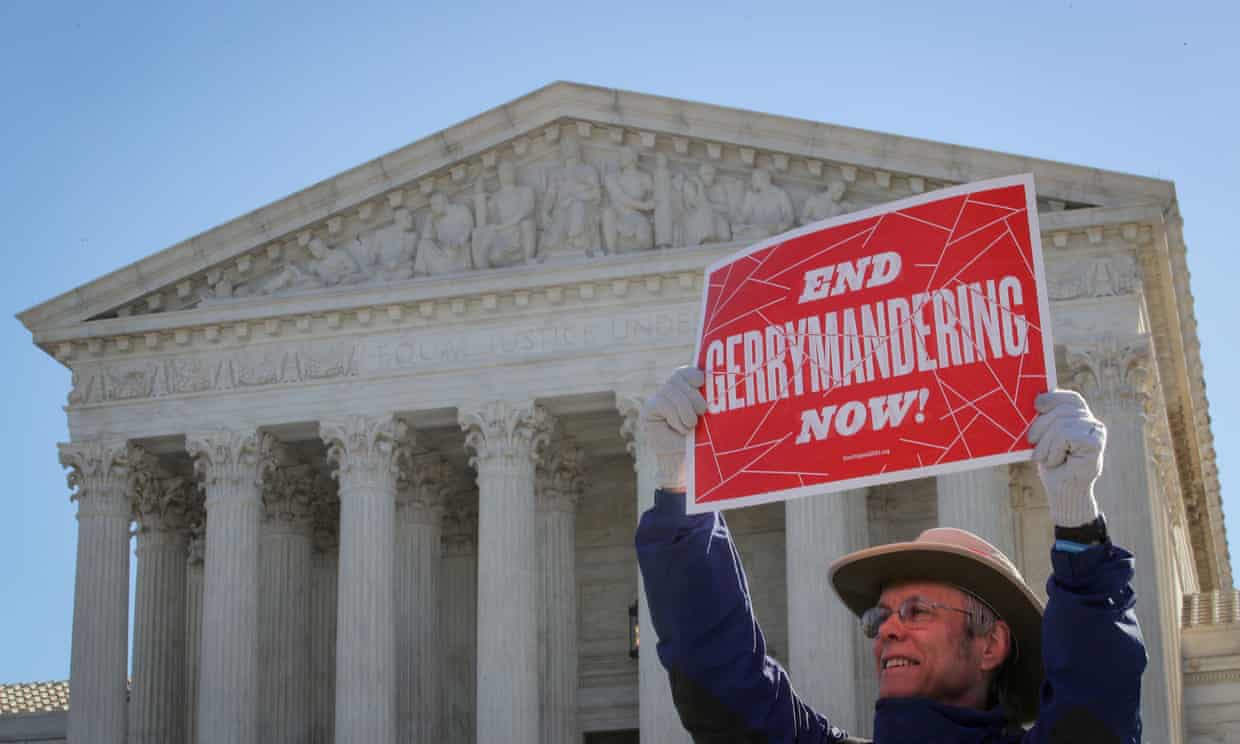Back on the homefront “This case has now been referred to a three-judge court, and the parties may exercise their right to appeal from an order of that court granting or denying interlocutory injunctive relief,” the justices wrote.
Blow to Republicans as supreme court denies bid to overturn electoral maps
Party urged justices to overturn maps imposed in North Carolina and Pennsylvania that made elections more competitive
The US supreme court has rejected requests from Republicans in North Carolina and Pennsylvania to overturn electoral maps imposed by the state supreme court in both places that make elections more competitive.
The justices ruled 6-3 on Monday not to block the new North Carolina maps from going into effect, with justices Samuel Alito, Neil Gorsuch, and Clarence Thomas saying they would have paused the state supreme court’s ruling.
In the Pennsylvania case, there were no noted dissents from the court’s decision. That case will now go to a panel of three federal judges and Republicans can appeal a ruling from whatever they decide to the US supreme court in the future.
Both decisions are a win for Democrats politically, as well as voting rights groups that have turned to state supreme courts recently to try and police partisan gerrymandering. The US supreme court said in 2019 that federal courts could not police partisan gerrymandering, but said state constitutions could.
In North Carolina, the state supreme court struck a congressional map that would have likely given Republicans an advantage in 10 of the state’s 14 congressional districts, in a state that is extremely competitive. The map was so egregiously distorted towards Republicans that it ran afoul of a provision in the state constitution that guarantees free elections. After Republicans failed to produce a fairer map, the supreme court replaced it with a plan that gave the GOP a 7-6 advantage with one highly competitive seat.
Republicans wanted the US supreme court to block that map, arguing that the US constitution explicitly gives state legislatures the power to set the “time, manner, and place of elections”. By drawing new districts, they argued, the state supreme court have overstepped its authority. Embracing such an argument, experts warned, would emboldened state legislatures to enact new restrictive voting measures with little oversight.
The court issued its decision on an emergency basis and did not explain its reasoning. . .



No comments:
Post a Comment